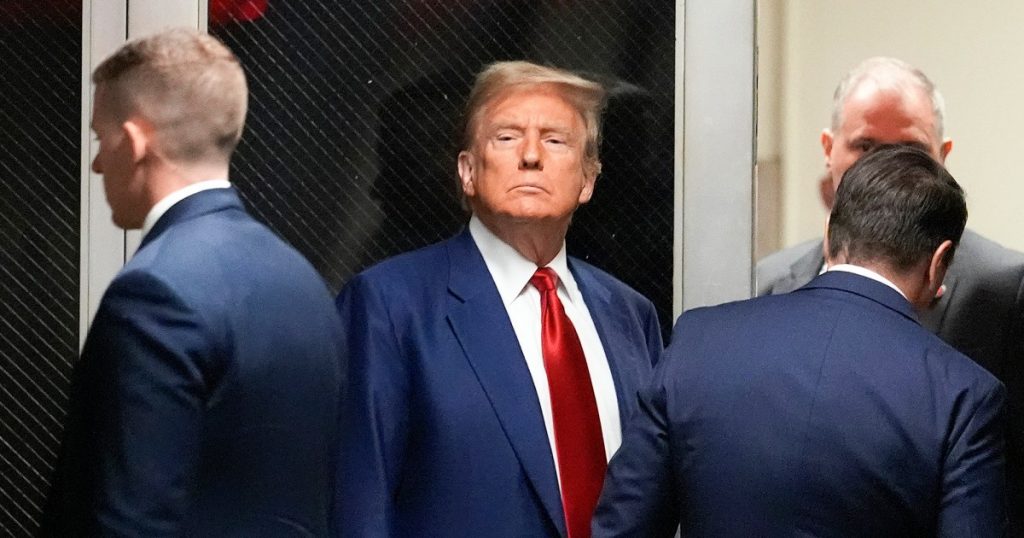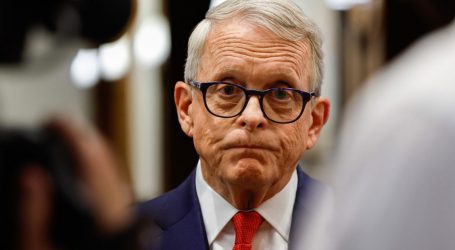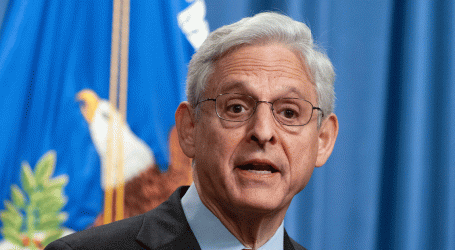New York Appeals Court Gives Donald Trump a $300 Million Break
Former President Donald Trump leaves a pretrial hearing during a recess with his defense team on March 25.Mary Altaffer/Pool/AP
Fight disinformation: Sign up for the free Mother Jones Daily newsletter and follow the news that matters.Donald Trump received mixed legal news in New York Monday morning, with an appeals court handing the former president an enormous financial break in his civil fraud case. At nearly the same time, however, a different New York judge scheduled an unrelated criminal case against Trump to go to trial next month.
In the civil case, Trump had been found liable at trial for defrauding banks and insurance companies of more than $464 million (including interest and penalties) by giving them falsely inflated values for his properties—which meant he saved hundreds of millions on insurance policies and loan interest. In order to avoid having to pay the entire judgment while while he appeals that verdict, Trump needs to secure a substantial bond that the state could seize if Trump were to ultimately lose case. New York Attorney General Letitia James, who prosecuted the civil fraud case, initially gave Trump 30 days from the verdict to start paying the money he owed. But on Monday, the state appeals court gave Trump an additional 10 days to post the bond. And instead of the half-a-billion-dollar bond the trial court had required Trump to post, he will now need to come up with just $175 million as he seeks to overturn the lower court’s verdict.
That’s a big win for Trump. The original deadline for Trump to pay up was today—Monday—and Trump had given no sign he was going to be able to post a half-billion-dollar bond. In fact, last week, Trump’s attorneys filed a motion with the appeals court begging for some kind of waiver of the bond requirements, saying that Trump had spoken with over 30 bond companies and none were willing to supply the funds unless Trump ponied up around $1 billion in collateral. Moreover, the bond companies wanted that collateral in liquid form, not in the form of any of Trump-branded golf courses or real estate holdings. Trump simply doesn’t have that kind of cash, his lawyers argued. They asked for a more obtainable $100 million bond.
The appeals court seems to have largely agreed, slashing the bond to $175 million. But that’s still going to be a burden on Trump. Based on personal financial disclosures he filed as a candidate last fall, it seems likely that Trump has several hundred million dollars in cash or liquid investments, but he’s already under some pressure from multiple other ongoing legal cases. Trump has also had to post a $91.6 million bond while he appeals the verdict against him in E. Jean Carroll’s defamation lawsuit.
Trump’s social media platform Truth Social is expected to go public this week, which gives Trump’s wealth a big boost, at least on paper. But that depends on the stock price remaining high and Trump being able to cash out his shares. (The stock price for the SPAC company merging with Truth Social as part of the deal immediately began sliding late last week after the news of a merger broke, before rising dramatically Monday morning.) Insiders like Trump are typically prohibited from selling shares in a newly public company for six months, meaning the money will remain off-limits unless Trump gets a special waiver.
After the appeals court’s decision was released on Monday, Trump quickly posted on Truth Social that he would abide by the new terms and would “post either a bond, equivalent securities, or cash.”
But just around the corner from the downtown courthouse where the appellate judges reduced his bond, Trump was in Manhattan District Court for the unrelated criminal case case in which he is accused of covering up hush money payments to adult film star Stormy Daniels. Trump and his attorneys were seeking an extended delay of that trial, which was originally slated to start today before being temporarily postponed over allegations that prosecutors had improperly withheld some documents from discovery.
Judge Juan Merchan was not impressed with Trump’s demands, scolding the former president’s attorneys several times for being unprepared. At one point, Merchan went so far as to praise the DA’s office, saying that in their production of documents to Trump’s team, prosecutors “went so far above and beyond what they were required to do that it’s odd that we’re even here.”
After a short recess, Merchan quickly ruled there was no reason for any further delay and said the trial would begin on April 15. Outside the courtroom, Trump said he would appeal that decision, too. And, as always, he called the prosecution a “witch hunt.”





